British and German warships will lay wreaths at the site of the Battle of Jutland in the North Sea to commemorate the biggest naval engagement of the first world war, in which more than 6,000 British and 2,500 German sailors died.
The ceremony on Jutland Bank off the Danish coast will take place on 31 May next year, 100 years since the battle began, as part of the four-year commemoration of the centenary of the war that many thought would end all wars.
As part of the Jutland commemorations, a service will be held at St Magnus cathedral – Britain’s most northerly cathedral – in Kirkwall on Orkney, HMS Caroline in Belfast will be opened as a museum and visitor attraction, and paving stones will be laid to honour the four Victoria Cross recipients from the battle.
Ceremonies will also be held in Wilhelmshaven, home to the German High Seas Fleet, the German imperial battle fleet, and at the Laboe naval memorial in Kiel as well as for Jutland casualties buried in Sweden, Norway and Denmark.
The Battle of Jutland – or the battle of the Skagerrak as it was known to Germans – involved 100,000 men aboard 250 ships over the course of 72 hours.
The British fleet anchored at Scapa Flow, a natural harbour in the Orkney Islands, off the northern coast of Scotland, caught the German fleet some 75 miles off the Danish coast, after a newly created intelligence unit cracked German codes.
The Royal Navy lost two British battle cruisers, Indefatigable and Queen Mary, in the first hour, along with 2,200 men. The German fleet eventually escaped under cover of darkness, allowing Germany to both proclaim the battle as a victory.
But despite the Royal Navy losing more ships and men, the Battle of Jutland left Britain in control of the North Sea as the German fleet made no further attempts to break the allied blockade or to engage the British fleet for the rest of the war. The German naval effort after 1916 was left to U-boats.
Admiral Sir George Zambellas, first sea lord and chief of the naval staff, said: “The first world war remains characterised by imagery of the trenches of the western front. Yet the sea was Britain’s lifeline and the supremacy of the Royal Navy was crucial to national survival.
“It is right, a century after Jutland – the largest and last clash between dreadnoughts – that we join together to remember those lost from both sides.”
Fiona Hyslop, Scottish National party MSP and Scottish government secretary for culture, Europe and external affairs, said: “The Battle of Jutland was the war’s largest naval battle and this will be an important commemoration when we should reflect on the bravery of the Navy and its sailors.
“The impact of the battle was felt across Scotland, Europe and beyond, and it is fitting that we remember those who died and those who fought in the battle, and during the first world war as a whole.”
The government’s £50m commemoration of the centenary of the first world war has focused on impressing on schoolchildren the events of the war and its consequences. The programme began with events in Scotland, England and Belgium on 4 August 2014, the 100th anniversary of the declaration of war.
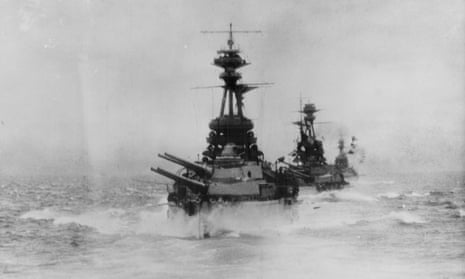
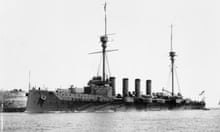

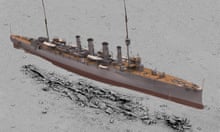
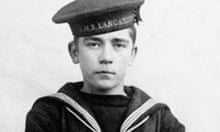
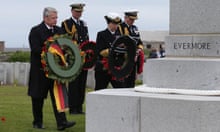
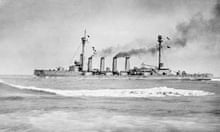

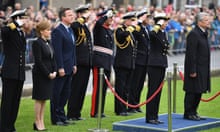
Comments (…)
Sign in or create your Guardian account to join the discussion